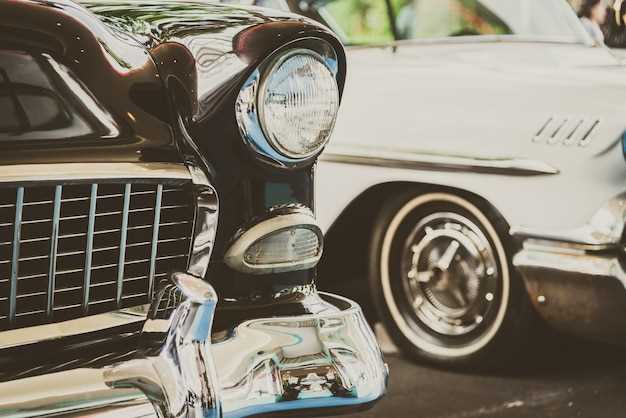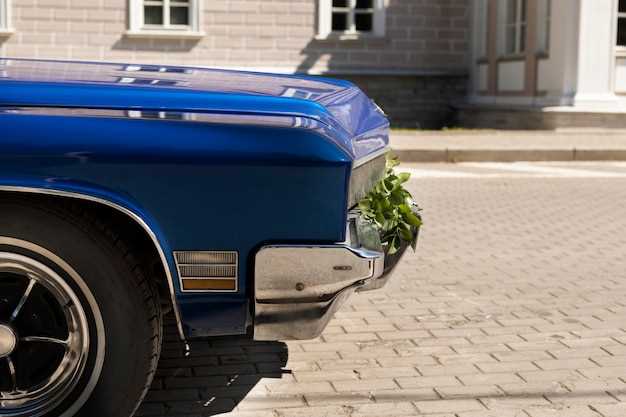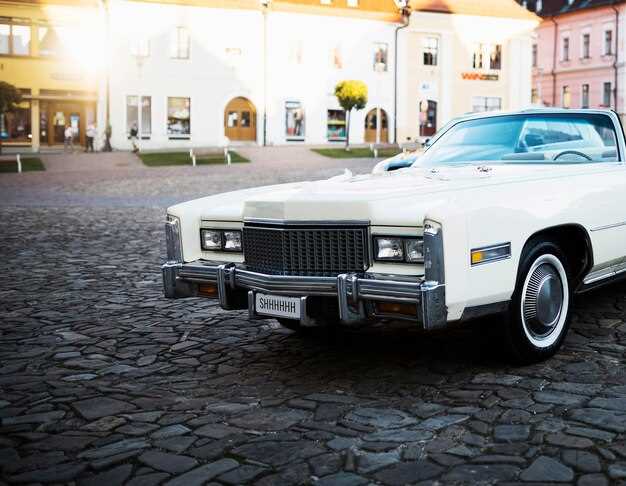
In the realm of classic automobiles, muscle cars hold a special place in the hearts of enthusiasts and collectors. Their powerful engines, distinctive styles, and rich history make them highly sought after in the automotive market. Auctions have become a popular platform for buying and selling these iconic vehicles, offering buyers the chance to own a piece of American automotive heritage.
Several auction houses in the U.S. have gained prominence by specializing in classic and muscle cars, showcasing an impressive array of vehicles that appeal to both seasoned collectors and newcomers alike. These auctions not only provide a venue for transactions but also foster a community of like-minded individuals who share a passion for these remarkable machines.
Barrett-Jackson, RM Sotheby’s, and Mecum Auctions are among the leading auction houses that have carved out a niche for themselves in this market. Each of these houses offers unique features and advantages, such as extensive marketing campaigns and expert appraisals, which enhance the overall auction experience. Understanding the strengths and specialties of these auction houses is essential for anyone looking to navigate the exciting world of muscle car auctions.
As we delve deeper into this article, we will explore the key characteristics, auction strategies, and notable sales at these premier venues. By examining the current landscape of muscle car auctions, we aim to provide valuable insights for buyers and sellers alike, ensuring that enthusiasts can make informed decisions when it comes to acquiring or parting with these legendary vehicles.
Top Auction Houses Specializing in Muscle Cars
When it comes to muscle car auctions, several leading auction houses are recognized for their expertise, extensive networks, and impressive sales records. These establishments cater specifically to enthusiasts and collectors who are passionate about American muscle cars.
One of the most prominent auction houses is Mecum Auctions. With a rich history and a reputation for high-profile sales, Mecum focuses heavily on muscle cars, often featuring significant classic models. Their events typically attract a wide range of buyers, ensuring competitive bids and exceptional sales results. The vast catalog usually includes rare finds and well-preserved vehicles, which are highly sought after by collectors.
Another key player in the muscle car auction scene is Barrett-Jackson. Known for their vibrant auctions and extensive television coverage, Barrett-Jackson has established itself as a premier destination for buyers and sellers alike. Their commitment to quality and authenticity has led to remarkable sales, often showcasing iconic muscle cars that draw large crowds and enthusiastic bidding.
RM Sotheby’s, while traditionally known for fine art and luxury items, has made a significant impact in the classic car auction realm. Their sales often include a selection of high-end muscle cars, attracting serious collectors and investors. The meticulous attention to detail and thorough provenance checks bolster their reputation, leading to impressive results in the muscle car market.
Lastly, Russo and Steele specializes in the collector car market, with a significant emphasis on muscle cars. Their auctions are known for their intimate environments, allowing for a more personal bidding experience. Russo and Steele’s focus on American classics has resulted in successful sales, bringing together car enthusiasts from across the country.
These auction houses not only facilitate the sale of muscle cars but also contribute to the preservation and appreciation of automotive history. Their events are crucial for the muscle car community, providing opportunities for both buying and selling iconic vehicles.
Key Factors Influencing Muscle Car Auction Prices

The auction prices of muscle cars are shaped by several key factors that potential buyers and sellers should understand. One primary influence is rarity. Limited-production models or those with unique features often command higher prices at auctions due to their scarcity and desirability among collectors.
Another significant factor is the condition of the vehicle. Cars that have been meticulously restored or maintained in their original state usually attract premium bids at auctions. Buyers are willing to pay more for vehicles that show minimal wear and tear or boast complete documentation of their history.
Provenance also plays a critical role in determining auction prices. A vehicle’s background, including previous ownership and notable history, can greatly enhance its value. Muscle cars once owned by celebrities or used in iconic films often see increased interest and higher bids during auctions.
The market demand significantly affects pricing as well. Trends within muscle car collecting can shift over time; for instance, certain brands or models may become more sought after based on popular culture or emerging collector interests. Auction houses often observe these trends closely to assess starting bids and reserve prices.
Lastly, the timing of the auction can influence prices. Auctions that coincide with car shows, classic car exhibitions, or major events often see heightened attendance and competitive bidding, potentially driving prices higher.
Understanding these factors can empower both buyers and sellers to make informed decisions when participating in the muscle car auction market.
Understanding the Auction Process for Muscle Cars
The auction process for muscle cars involves several key steps that both sellers and buyers must understand to navigate the sales effectively. Initially, sellers need to prepare their vehicles for auction. This preparation includes ensuring the muscle car is in optimal condition, providing thorough documentation such as maintenance records, and highlighting any unique features that can enhance the vehicle’s appeal during the sales process.
Once the car is ready, sellers typically consign their vehicles through auction houses that specialize in muscle cars. These auction houses usually require comprehensive details about the car, including its history and any modifications. Sellers should understand the auction house’s fees and commissions, which will affect their overall returns from the sales.
On the auction day, potential buyers have the opportunity to inspect the muscle cars before placing bids. This inspection period is crucial, as it allows buyers to evaluate the cars’ condition and authenticity. Understanding the bidding process is essential for buyers; they need to be aware of strategies that can help them secure their desired vehicles at favorable prices. Bidders should also set limits to prevent overspending in the heat of the auctions.
As the auction progresses, it is crucial for both buyers and sellers to be aware of the auctioneer’s announcements regarding bids, reserve prices, and final sale conditions. After the auction, successful buyers will complete the necessary paperwork to transfer ownership, while sellers will receive payment, minus any commissions or fees agreed upon previously.
Ultimately, understanding the auction process for muscle cars allows participants to make informed decisions, ensuring a smoother transaction in the competitive environment of muscle car sales.
How to Prepare a Muscle Car for Auction Sale
Preparing a muscle car for auction sale is crucial to achieving the best possible price. Proper preparation not only enhances the vehicle’s appeal but also builds buyer confidence. Here are essential steps to follow:
| Step | Action |
|---|---|
| 1 | Clean and Detail the Car |
| 2 | Perform Mechanical Checkup |
| 3 | Gather Documentation |
| 4 | Research Market Trends |
| 5 | Set a Realistic Reserve Price |
| 6 | Prepare a Compelling Listing |
| 7 | Consider Professional Help |
Start with a thorough cleaning and detailing. A sparkling exterior and a clean interior make a strong first impression. It’s also essential to examine the mechanical condition of the car. Conduct a comprehensive checkup to identify and resolve potential issues.
Having all necessary documentation, such as service records and title history, ready for prospective buyers is critical. This transparency fosters trust and can facilitate faster sales.
Market research is vital. Understand the current demand and pricing trends for your specific make and model. This knowledge helps in setting a realistic reserve price, which is the minimum price you’re willing to accept.
Develop an engaging listing that highlights unique features, maintenance history, and any modifications. High-quality photos and detailed descriptions can significantly attract bidders.
Lastly, consider hiring a professional auction house. Their expertise in marketing and negotiating can maximize your sale, ensuring you receive the best value for your muscle car.
Trends in Muscle Car Purchases and Sales

The muscle car market has experienced significant fluctuations in recent years, with distinct trends emerging in both purchases and sales. One prominent trend is the increasing demand for classic models, particularly those from the late 1960s and early 1970s. Collectors are showing a renewed interest in iconic names such as the Ford Mustang, Chevrolet Camaro, and Dodge Charger. These vehicles are not only prized for their performance but also for their nostalgic value, making them coveted additions to any collection.
Another noteworthy trend is the impact of online auctions on sales dynamics. Digital platforms have broadened the reach for both buyers and sellers, enabling transactions that were previously limited to local or regional markets. This has resulted in heightened competition and, in many cases, increased sales prices. Bidders from various geographical locations can now participate in auctions, leading to a more diverse buyer pool willing to pay premium prices for sought-after models.
In addition, the rising popularity of electric vehicles has influenced muscle car enthusiasts to rethink the future of traditional combustion engines. Some buyers are gravitating towards modified versions of classic muscle cars featuring electric drivetrains, allowing for a blend of nostalgia and modern technology. This shift is creating a niche market where sales of retrofitted models are gaining momentum.
Lastly, the economic climate plays a crucial role in shaping purchasing behaviors. As disposable incomes rise, so too does the willingness to invest in high-value assets like classic cars. Conversely, during economic downturns, sales may slow as collectors hold off on purchases. Understanding these patterns can provide valuable insights for both collectors and investors aiming to navigate the ever-evolving muscle car market.
What Buyers Should Know Before Bidding at Auctions
Participating in a muscle car auction can be an exciting experience, but buyers should be prepared to make informed decisions. Here are essential points to consider before placing your bid:
- Research the Auction House: Investigate the reputation and track record of the auction house. Look for customer reviews and success stories related to previous sales.
- Know the Fees: Understand all associated costs, including buyer’s premiums, taxes, and any additional charges that may apply to the sale. This knowledge helps you gauge the total expense.
- Inspect Vehicles: Attend pre-auction viewings to inspect cars in person. Check the car’s condition, history, and authenticity to ensure it meets your expectations.
- Establish Your Budget: Set a firm budget before the auction begins. Factor in potential bidding wars that might drive prices higher than anticipated.
- Stay Informed About Market Values: Research the current market trends for muscle cars. Knowing the value of specific models can help you determine a reasonable bidding range.
- Understand the Bidding Process: Familiarize yourself with the auction format, including the bidding increments and any rules that apply, to avoid surprises during the event.
- Be Prepared to Walk Away: Have the discipline to walk away if the bidding exceeds your budget. Emotional bidding can lead to unforeseen financial strain.
- Consult Experts: Consider seeking advice from experienced collectors or professionals in the muscle car community. Their insights can provide valuable guidance during the auction.
By following these guidelines, buyers can enhance their auction experience and make well-informed decisions that align with their goals and budgets.




